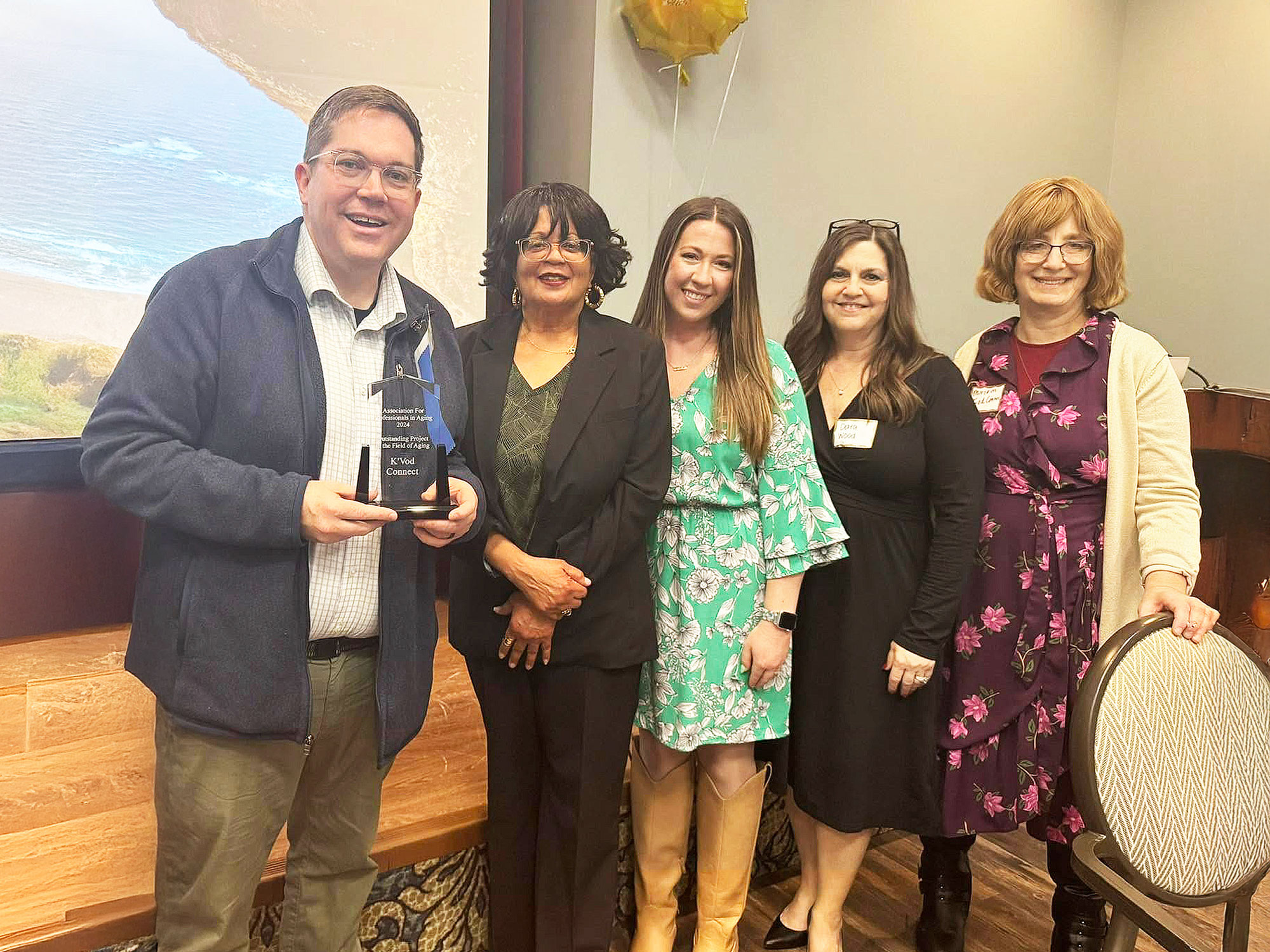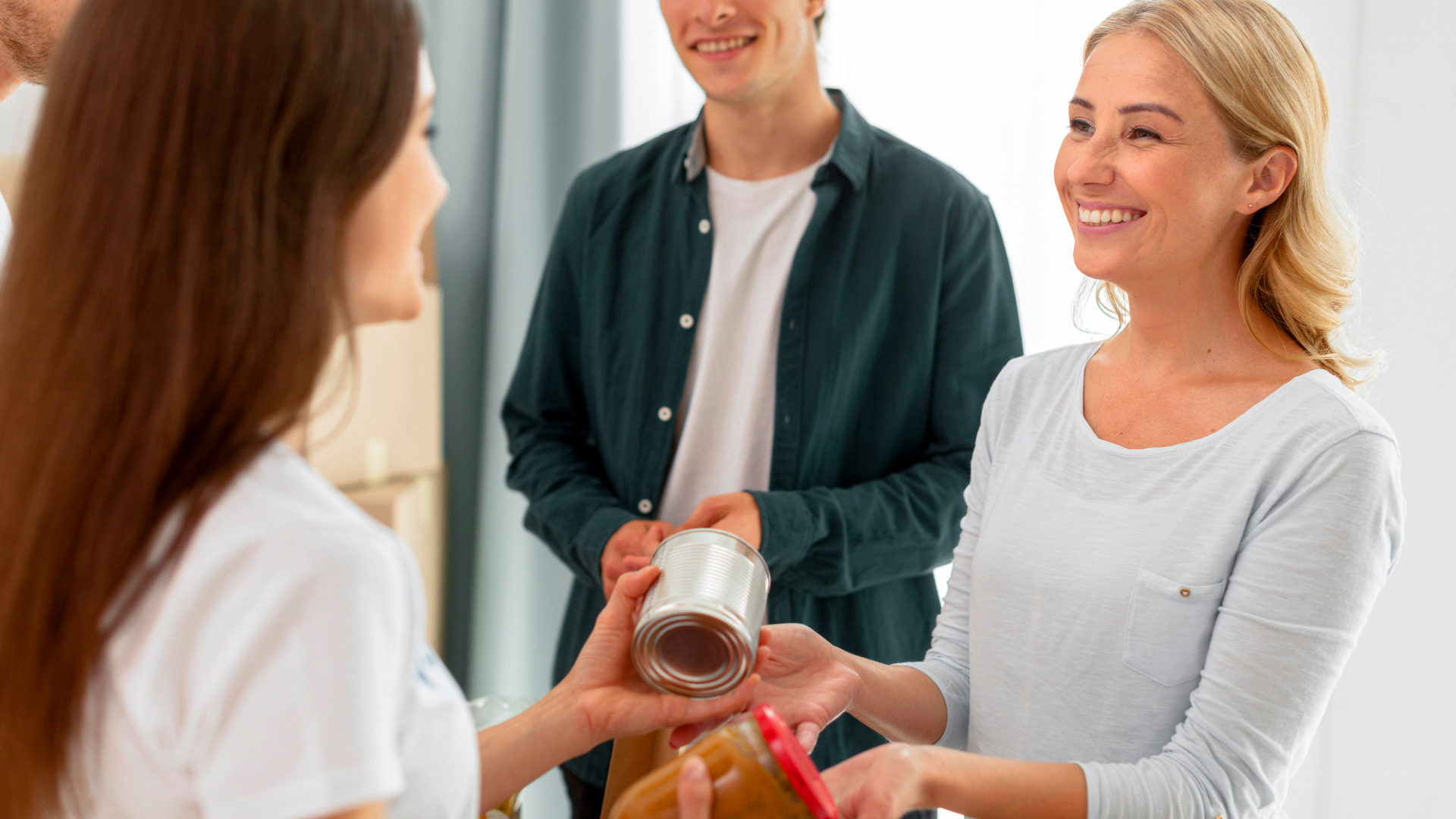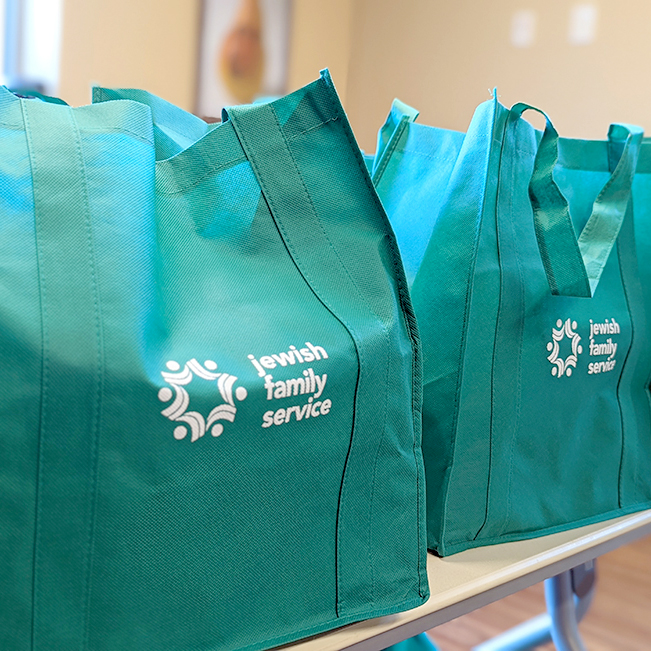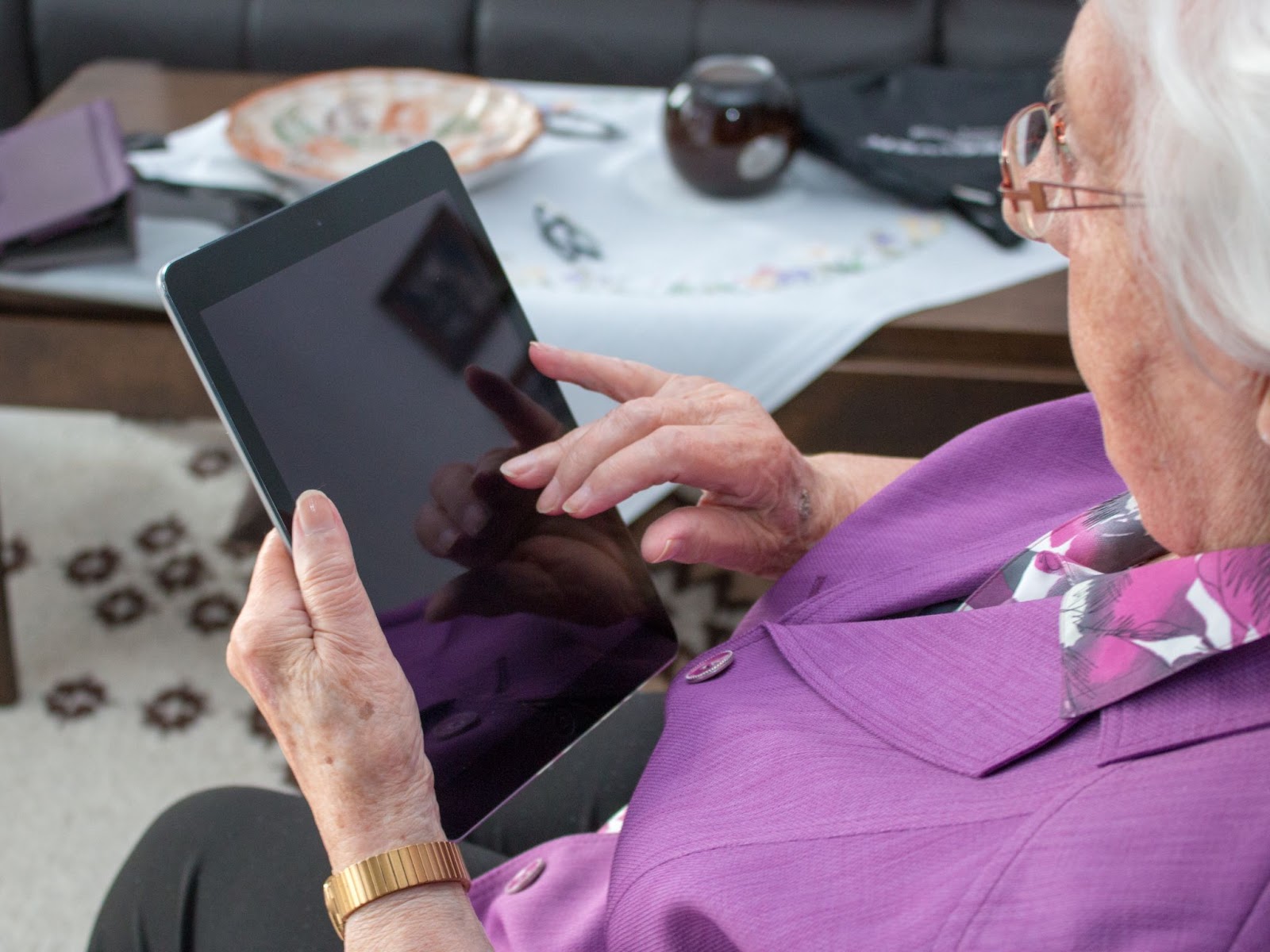Older Adult Services · May 20, 2025
Jewish Family Service (JFS) is on a roll. After recently becoming the only program in Ohio to win a grant from the national Alzheimer’s Foundation for its new Adult Day Services, JFS just won another honor. On March 20, its K’vod Connect program won the Tristate Association for Professionals in Aging’s Outstanding Project in the Field of Aging Award.
Food & Financial Assistance · April 24, 2025
Over 40 volunteers, including Gabrielle and Eddie Rivin (pictured), collected, packed, and delivered Passover food, including meals and items needed for the ritual seder, to those who needed them.
Giving & Volunteering · October 21, 2024
Update: Len Mitzman z"l, passed December 17, 2024, two months after this article was published. May his memory be a blessing. Ken Germain is not yet retired, but he recently realized he wanted to devote more time to the Jewish community. World events also played a role. “When war broke out in Israel after the October 7, 2023 massacre, I felt a strong need to do even more for the Jewish People,” Ken said. “My wife, who had a more traditional Jewish background than I did...."
Holocaust Survivors · June 06, 2023
As a native of Berlin, Enno Zschiedrich has been immersed in history his whole life. And not just any history; a precise history that is painful to remember, and dangerous to forget. Reckoning with this history is a central reason Enno came to Cincinnati, last September, as the Action Reconciliation Service for Peace (ARSP) volunteer for Jewish Family Service’s Center for Holocaust Survivors.
Giving & Volunteering · October 07, 2022
People generally want to give back and make a positive impact for the underprivileged among us, but not everyone has the financial wherewithal to do that. Fortunately, there are numerous ways—aside from giving money—to improve communities, help individuals, support great causes, and ultimately make a difference.
Giving & Volunteering · August 08, 2022
Jim Ellis and Howard Goldwasser don’t know each other, but they share a private compulsion: they are serial volunteers. At the moment, they also share a common benefactor: Jewish Family Service Heldman Family Food Pantry. The men, both retired, have been independently donating their time to the food pantry in a variety of ways, whether it’s helping people shop; gathering and packing up orders; or making deliveries directly to homes.
Counseling & Mental Health · May 10, 2022
In January of this year, Jewish Family Service Youth Mental Health (YMH) program quadrupled in size when Director Leah Marcus brought on three talented social workers to join her efforts: Amanda Cramer, Nina Pridonoff, and Kasey Rosswurm. “Kasey, Nina, and Amanda are such a fantastic team,” Marcus said. “They are very energetic and have worked together so well. I couldn't pick a better group of people to do this critical work.”
Counseling & Mental Health · August 09, 2021
From modern-day stressors, like social media, 24/7 texting, and constant location tracking—to more traditional ones, like homework, family turmoil, and bullying—today’s youth are living with a volatile mixture of societal pressures. And though the human psyche is equipped to handle enormous stress, when these pressures are intense, incessant, or novel (think coronavirus), they can increase one’s risk for mental health disorders.
Older Adult Services · July 25, 2021
Jewish Family Service is ramping up a new program to help isolated older adult community members stay connected to the community virtually. Nicholas Rackers is the new Virtual Programs Engagement Specialist at JFS. He is overseeing a program that provides technology and training to older adult community members so they can better engage with JFS’s online programming and connect with their families and friends.
Food & Financial Assistance · May 31, 2021
One of the most important aspects of charitable assistance is the need to protect the confidentiality of recipients. People’s dignity should be at the center of any provided service; if a family is struggling—whether financially or in other ways—their right to privacy must be respected. So, when Jewish Family Service (JFS) recently received a grant that made recipient anonymity more difficult, their staff worked hard to create a resolution that was a success for everyone involved.










